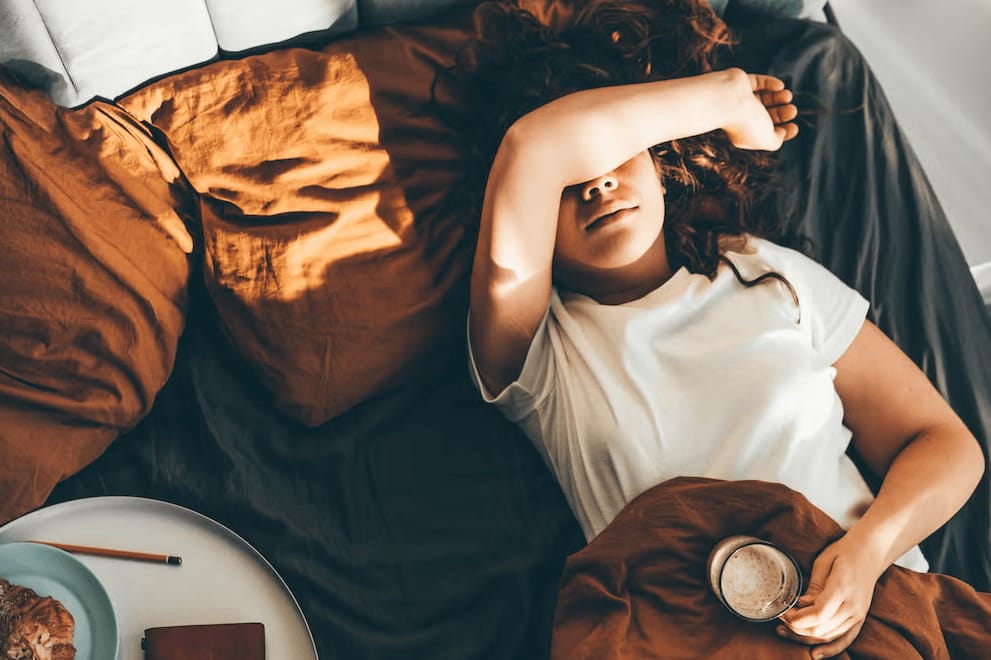- Thriving Guide
- Posts
- Morning Anxiety and How to Manage It
Morning Anxiety and How to Manage It
If you wake up feeling tense, restless, or overwhelmed, you’re not alone here’s why morning anxiety happens and how to ease it.

If your mornings often start with racing thoughts, tension, or a sense of dread, you may be experiencing what’s known as morning anxiety. Though it’s not a medical diagnosis, many people both with and without diagnosed anxiety disorders find their symptoms peak in the early hours of the day.
Understanding why this happens and what you can do about it can help you start your mornings with more calm and control.
Common Symptoms of Morning Anxiety
Morning anxiety feels similar to other forms of anxiety it’s simply most noticeable right after waking. Common symptoms include:
Persistent worry, fear, or a sense of impending doom
Racing or intrusive thoughts
Restlessness or irritability
Trouble focusing
Sweating, trembling, or feeling suddenly hot or cold
Dizziness or lightheadedness
Muscle tension or chest tightness
Shortness of breath or rapid heartbeat
If these symptoms happen regularly or interfere with your daily routine, they may signal an underlying anxiety disorder.
Why Morning Anxiety Happens
Anxiety can spike in the morning for a number of reasons, both biological and behavioral.
1. Cortisol Surge (“Stress Hormone”)
When you wake up, your body releases a surge of cortisol, the hormone that helps regulate stress and energy levels. Known as the cortisol awakening response (CAR), this spike is strongest within the first hour after waking and tends to be more pronounced in people who already experience anxiety.
2. Caffeine Consumption
That morning coffee might be adding fuel to the fire. High caffeine intake has been linked to increased anxiety symptoms, heart palpitations, and jitteriness. If you’re prone to anxiety, cutting back could help calm your mornings.
3. Poor Sleep Quality
Sleep deprivation and restless nights make anxiety symptoms worse. When the brain doesn’t get enough rest, it has a harder time regulating mood, stress, and emotional reactivity. Research shows that people who sleep deeply and consistently have lower levels of morning anxiety.
4. Blood Sugar Fluctuations
Skipping breakfast or eating sugary foods can cause spikes and crashes in blood sugar levels, which may trigger or worsen anxiety. Stable blood sugar helps stabilize mood and energy throughout the day.
5. Underlying Anxiety Disorders
Morning anxiety can also be a sign of a deeper anxiety disorder, such as generalized anxiety disorder (GAD). GAD is characterized by chronic, excessive worry lasting at least six months, often accompanied by fatigue, muscle tension, and difficulty concentrating.
How to Cope With Morning Anxiety
While occasional morning anxiety is normal, regular or intense symptoms can benefit from targeted lifestyle adjustments and, when needed, professional care.
Try these strategies to start the day calmer:
1. Limit Caffeine and Alcohol
If your anxiety worsens after coffee, try switching to green tea or half-caf. Avoid drinking alcohol late at night, which can disrupt sleep and heighten morning stress.
2. Eat a Balanced Breakfast
Start your day with foods that stabilize blood sugar and provide steady energy think oatmeal with nuts, eggs with whole-grain toast, or yogurt with berries. Avoid sugary cereals or pastries that can lead to a crash later.
3. Practice Relaxation Techniques
Incorporate deep breathing, meditation, or gentle stretching into your morning. Even five minutes of mindfulness can help slow your thoughts and ease physical tension.
4. Improve Sleep Hygiene
A consistent bedtime routine helps regulate stress hormones. Go to bed at the same time each night, limit screen use before bed, and keep your room cool, dark, and quiet.
5. Move Your Body
Exercise releases endorphins that reduce stress and boost mood. Activities like walking, swimming, or yoga can be especially helpful in lowering anxiety levels.
6. Manage Daily Stressors
Chronic stress often underlies morning anxiety. Prioritize self-care, set realistic boundaries, and make time for restorative activities reading, listening to music, or connecting with loved ones.
When to See a Healthcare Provider
You should reach out to a healthcare professional if your anxiety:
Feels overwhelming or out of control
Interferes with work, school, or relationships
Persists even in calm situations
Gets worse despite self-care efforts
A provider can help rule out physical causes (like thyroid or blood sugar issues) and connect you with mental health support. Cognitive behavioral therapy (CBT) is highly effective for anxiety and teaches tools to reshape negative thought patterns. In some cases, anti-anxiety or antidepressant medications may also be prescribed.
The Takeaway
Morning anxiety can make even simple routines feel daunting but with awareness and the right coping strategies, it’s manageable. Small shifts in sleep, nutrition, and mindfulness can make mornings less stressful and set a positive tone for your entire day.
If this article resonated with you, subscribe to our newsletter or share it with someone who could use a calmer start to their morning.